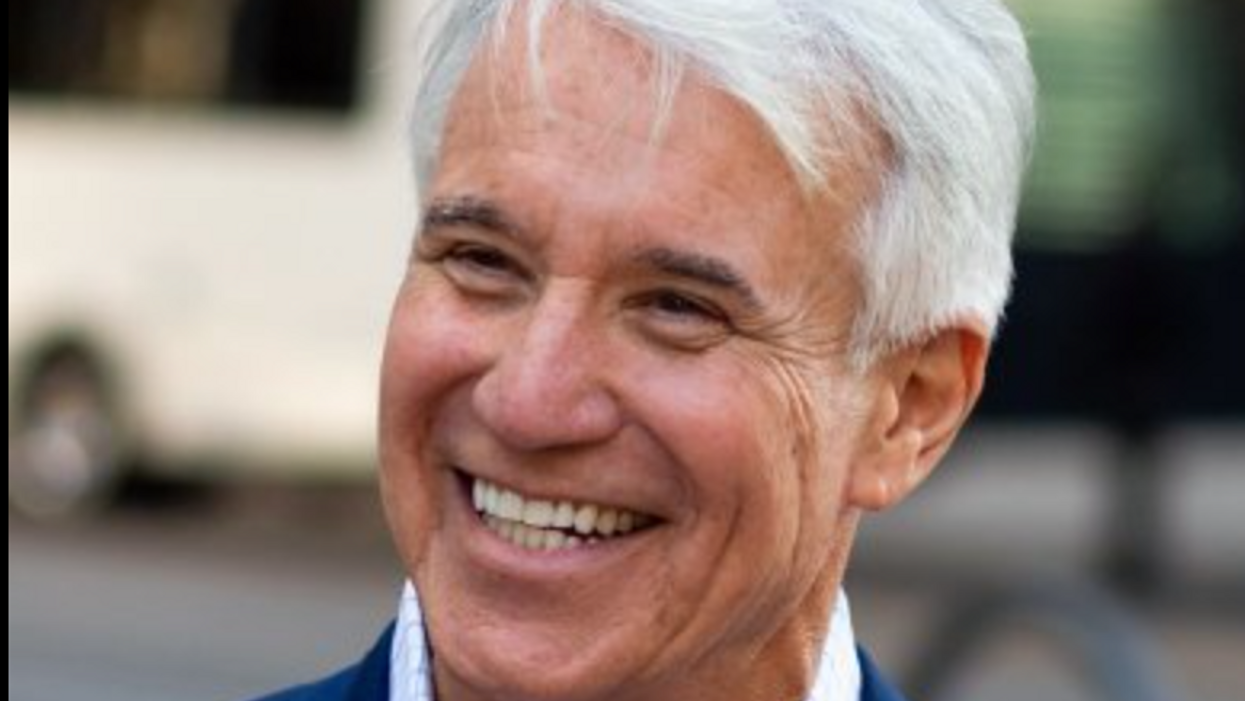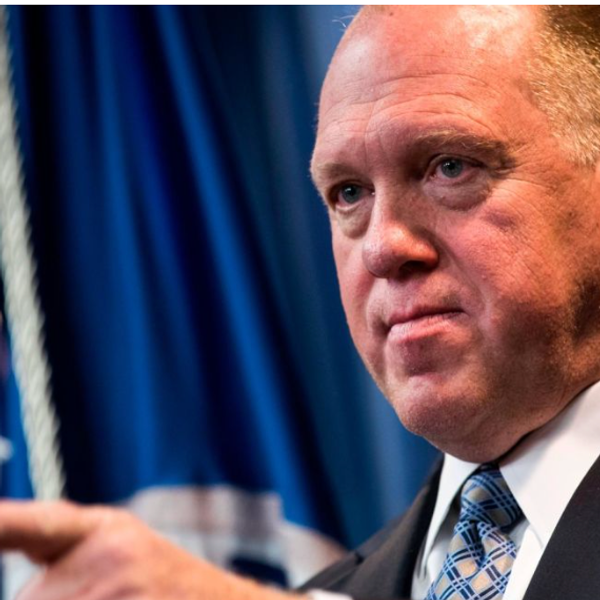Hard Truths About The Power Of 'Progressive' Prosecutors To Make Change

George Gascon
On January 3, the newly elected Manhattan District Attorney Alvin Bragg announced a fresh policy in what he called his “Day 1 Memo”: Under his leadership, the D.A.'s office would not prosecute low level crimes. Within days, New York gubernatorial candidate Andrew Giuliani, son of Rudy, and former mayoral candidate and anti-crime crusader Curtis Silwa launched a petition to recall Bragg. It had over 16,000 signatures as of February 25.
Then this week Bragg fulfilled his promise of desistance. He’s slowing the roll up Fifth Avenue to Trump Tower, and pausing the investigation into the former president and his family, a decision Bragg’s supporters aren’t likely to embrace. Certainly two of Braggs’ assistants didn’t agree with it; they resigned.
Charges against Donald J. Trump might prove to be a weak case, but it’s not like such evidentiary liability stops other attorneys in the same position. Just this week, prosecutors in Lorain County, Ohio announced their decision not to retry Nancy Smith and Joseph Allen, a man and a woman falsely convicted of raping children connected to a local Head Start program. A judge conceded that the original prosecutor pursued a weak case when he hadn’t found evidence of a crime.
The prosecutors' resignations revealed the reality that there’s no such thing as a progressive prosecutor. A progressive person would eschew the absolute authority the position bestows.
The progressive prosecutor movement first caught news media attention in 2016, but an example of a progressive prosecutor surfaced twenty years earlier, in 1996, in the movie Sleepers. Based on a memoir by the same name by Lorenzo Carcaterra, a former New York Daily News reporter, Sleepers tells the story of four poor kids from Hell’s Kitchen sent to juvenile detention for inadvertently hurting a man during a prank with a hot dog cart.
In detention, guards abuse them sexually, mentally and physically. Years later, two of the four boys have decided to support themselves through crime, and two went straight, or at least legal: one’s the author/journalist and the other serves the City of New York as an assistant district attorney.
The two who dedicated themselves to living off lawbreaking — one “robbed and killed at will, or on command” and the other killed a man for $50 at age 17 — happen upon the most abusive guard, played by Kevin Bacon, in a Hell’s Kitchen bar and they kill him after confronting him over his meatloaf. “One down,” they tell the journalist. “One down.”
The case against the two defendants is strong except for the lack of a murder weapon. Yet the character Michael, the assistant district attorney played by Brad Pitt, sets up a win for them; amongst other machinations, he arranges for a lawyer with a drinking problem who can be manipulated (admittedly an easy task), and cajoles a priest into perjuring himself to provide an alibi for the two defendants.
It’s not a scenario that could play out exactly the same way today. For one, it’s a full blown conspiracy that depends on the silence and continued agreement of a large number of people. Second, it was pulled off in a fictional setting designed to relay a true story -- a story that both the Sacred Heart of Jesus Church and School, attended by the four friends as children, and the Manhattan District Attorney's Office complained about back when the movie premiered -- and even then, during a time when print newspapers arrived on doorsteps and could carry a handwritten note of where and when to meet. With communications so digitized today and cameras everywhere, the DA would be busted in no time — if someone with prosecuting authority actually wanted to pursue the case.
Sleepers’ legacy isn’t the lesson that two people murdering another without accountability is progressive or moral prosecution. The redeeming ethics of the story are that it avoids the traditional response to perpetrators with histories of severe abuse: admonish them that two wrongs don’t make a right but do nothing to rectify the first wrong. That and the offending guards — who are suspected of continuing to abuse kids in the storyline — get arrested and charged, thus averting future harm.
Sleepers told audiences the truth about prosecutors: Their problem isn’t that they have unfettered power to prosecute; it’s that they have unfettered power at all. It’s not impossible that an attorney inside any of these offices is throwing legitimate cases; I’d venture it’s just as likely as pursuing weak ones. I wrote this when George Gascon was elected to serve as the District Attorney of Los Angeles in 2020: “There’s a difference between discretion and power. Power is the ability to do something and discretion is the choice to do it…Discretion is the direction but power is the hinge. It can swing where it likes.”
That’s what the news about District Attorney Alvin Bragg demonstrated this week. He can do whatever he wants and he just might dare to do so.
Today, the Sleepers movie’s value isn’t just the way it demonstrates that the job of prosecuting crimes tends to greenlight these mavericks, but that it directs the progessive prosecution movement to get smarter. Marching into prosecution offices under a woke banner isn’t a good idea, at least not for a while. Backlash awaits.
For one, labels like “progressive” prime the line prosecutors, the staff lawyers who work in these public offices who are used to pursuing people, to quit or undermine the new leader. In San Francisco, two line prosecutors resigned in October and defected to the effort to recall the current district attorney, Chesa Boudin. More than 97 percent of the line prosecutors in Los Angeles voted ‘No Confidence’ in Gascon this week, and that was after he toned down his reforms. A second bite at the ‘Recall George’ apple is underway.
Second, voters don’t necessarily want a progressive prosecutor right now given the headlines they read about crime; these candidates may lose their campaigns in 2022. The media microsurgery needed to dissect and disconnect violence rates from reform laws probably won’t be effective enough, at least not in time for the November elections.
If reformers want to change prosecution, they can’t promise that certain candidates will use their power for good because not everyone will agree on what’s good. Perhaps they should forget about wokeness and go in like Sleepers: infiltrate, ninja-style, embed themselves in these offices, and do what they can to achieve justice while looking like they're tough on crime.
But it would just be more honest to campaign saying, “I’m going to do what I’m going to do, whether you like it or not.” At least voters, like the audiences who watched Sleepers, would know what they’re getting from the leaders in charge of keeping them safe.
- “Progressive prosecutors” like Philadelphia's Larry Krasner are ... ›
- The Paradox of “Progressive Prosecution” - Harvard Law Review ›
- Progressive DAs are shaking up the criminal justice system. Pro ... ›
- Progressive prosecutors scored big wins in 2020 elections, boosting ... ›
- A Public Defender Definition of Progressive Prosecution - Stanford ... ›
- Progressive Prosecutors Should Relinquish Some Power - The ... ›
- The Facts on Progressive Prosecutors - Center for American Progress ›
- The progressive prosecutors blazing a new path for the US justice ... ›








